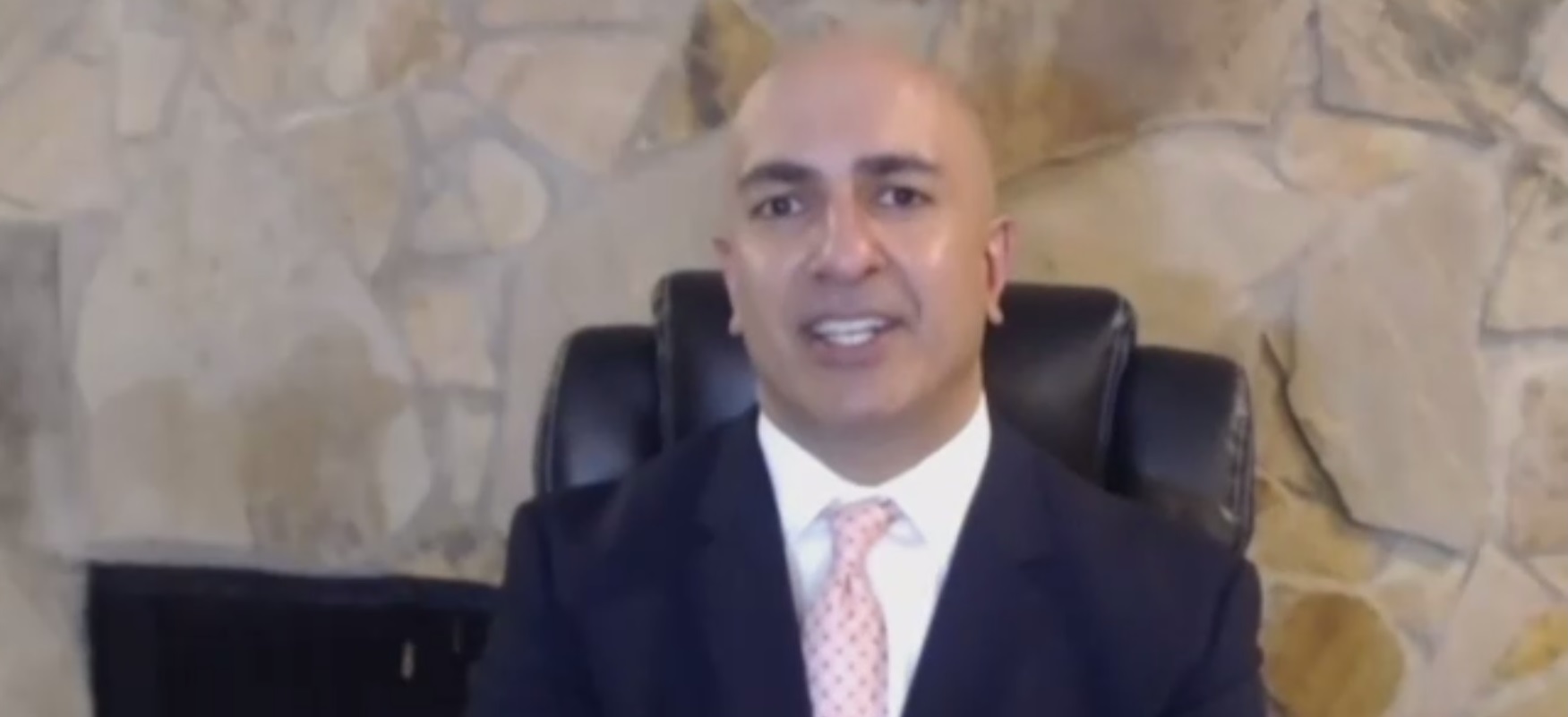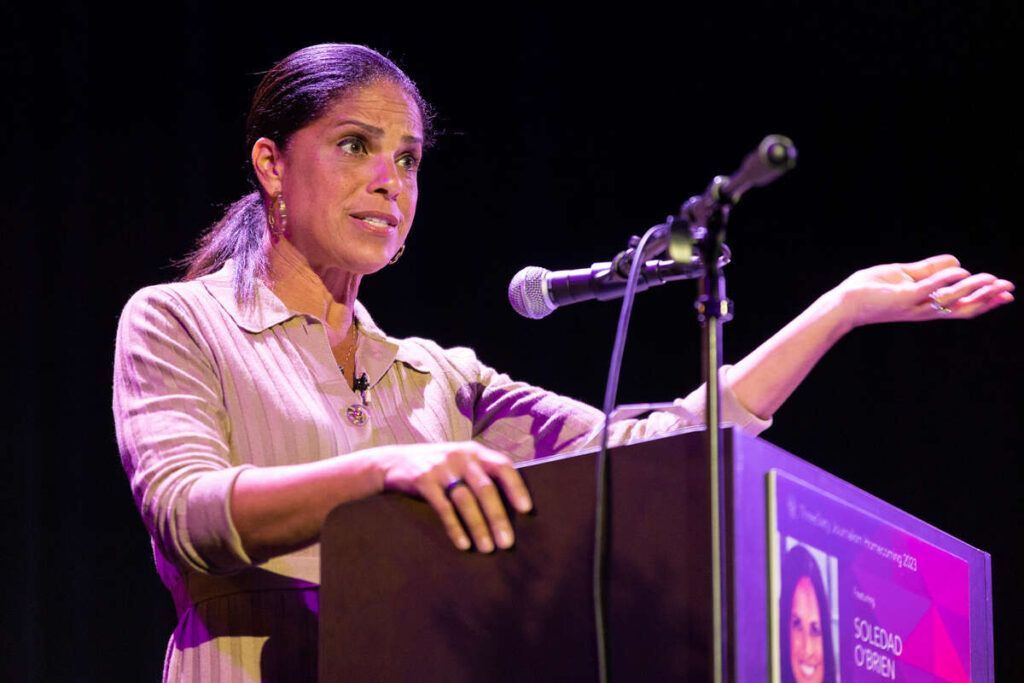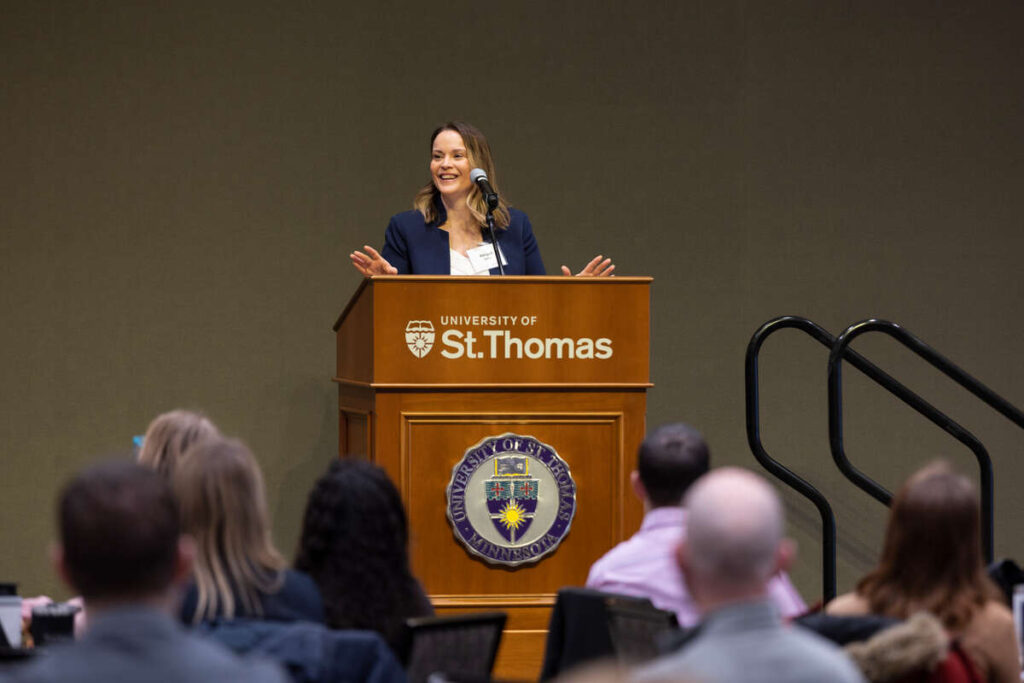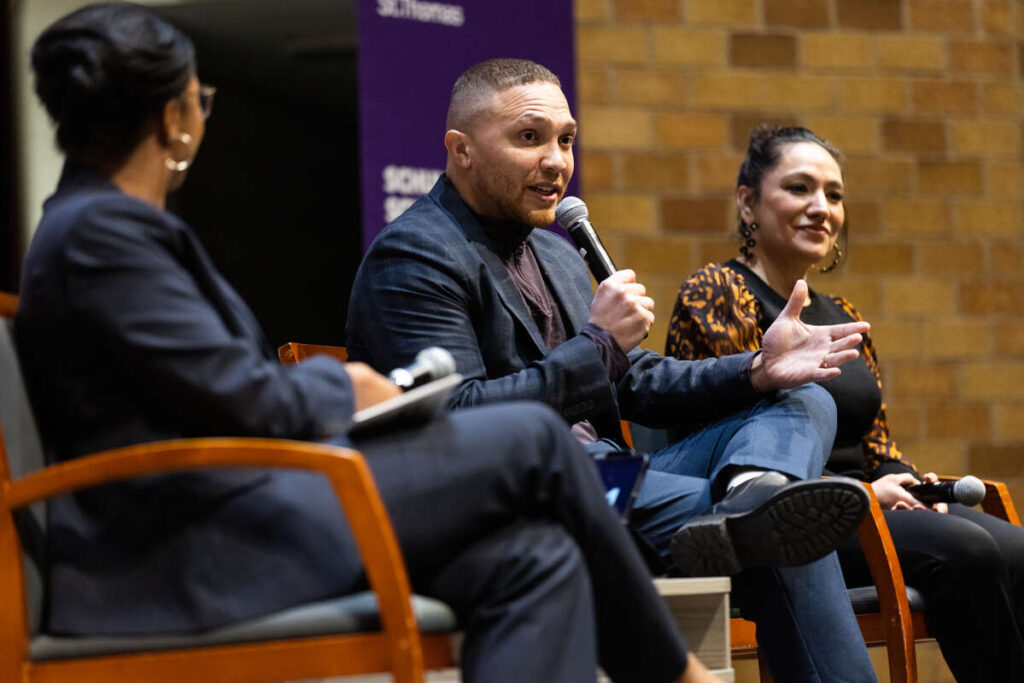Neel Kashkari, president and CEO of the Federal Reserve Bank of Minneapolis, spoke on the inequalities within the educational system as well as the devastating economic effects of COVID-19 as part of the St. Thomas Alumni Association’s First Friday Speaker Series on Oct. 2. Kashkari was joined by Dr. MayKao Y. Hang, Vice President and Founding Dean of the Morrison Family College of Health.
The Federal Reserve was created by the U.S. Congress in 1913 and acts as America’s central bank. The system is composed of 12 regional Federal Reserve banks which represent geographical community areas across the U.S. Kashkari oversees the Ninth District, which includes Montana, the Dakotas, Minnesota, western Wisconsin and northern Michigan.
Here are five observations from Kashkari’s virtual talk before students, alumni and friends of St. Thomas, which was attended by approximately 600 people.
1. The key to unlocking opportunities comes from education.
As the product of two immigrants from India who dreamed of giving their children a greater life, Kashkari was given a superb education through his youth which he claims allowed for “every door of this country to (have) been opening.” The key to unlocking those doors, Kashkari explained, was his amazing educational experience. His passion for education was clearly demonstrated when he conversed regarding educational disparities in K-12 schools with Hang. Kashkari said that he is the perfect example of what is possible when a child receives a good educational experience.
“I don't believe in guaranteeing everybody going to have an equal outcome but I do believe deeply in equality of opportunity: That every young person in our country should have the chance to reach their full potential and the only (way) that can happen is if they get that good education,” Kashkari said.
Additionally, Kashkari praised his engineering background for being a bridge to his success in the economic sector. When Kashkari first went into the public sector after working at Goldman Sachs, he found his engineering background far more valuable than his MBA. What made his engineering knowledge exceptionally useful is that he learned the fundamental skills of problem-solving during his years at University of Illinois at Urbana-Champaign, which he continues to utilize in his current role.
“Policymaking is just like engineering. You have a problem and you want to analyze the problem. You tear it apart, understand what are the key components of the problem and then you have certain tools. How do you use these tools to solve the problem? That is what policymakers are trying to do and that is what engineers do. It is the problem-solving skills that have enabled me to be effective in my current role,” Kashkari explained.
2. Minnesota has some of the widest disparities, particularly in K-12 education.
Although he has been focused on solving educational inequalities for a large portion of his career, Kashkari shared that his most recent response toward the issue has been working with former Minnesota Supreme Court Justice Alan Page to amend the Minnesota Constitution in order for every child in Minnesota to have a civil right to a quality public education. Over time, Kashkari believes this will be an impactful solution to the prominent educational disparities in the state today. This policy effort to reduce educational inequality began when Kashkari analyzed that previous attempts by Minnesota to close the gap have been unsuccessful due to party disagreement and inconsistency.
He used the example of Minnesota’s open enrollment policy to describe this.
Kashkari stated, “In Minnesota we are very proud of the fact that we have open enrollment. You can send your child to any public school that you want to, in theory. In reality, that recipient school has to agree and you have to find your own transportation to get there. Open enrollment is like lipstick, it's a pretend solution (and) it is not impactful enough to really address the education disparities in Minnesota.”
Kashkari explained there are many “lipstick solutions” in the state that do not sufficiently put children first. Holding the state accountable through his proposed amendment to the state constitution could lead to the positive transformation of Minnesota’s educational system.
3. We need to control COVID-19 in order to get the economy back on track.
Besides educational disparities, Kashkari talked in depth about the destructive effects of COVID-19 on the economy and Americans. The U.S. economy was booming – with an unemployment rate of 3.25% – prior to the first wave of the virus. With partial shutdowns of the economy and large numbers of layoffs, the unemployment rate stood at 7.9% in September with minimal recovery of only about 600,000 jobs created. Locally, the threats of bankruptcy impacting many successful restaurants in the Twin Cities will contribute to the grinding economic recovery from the pandemic.
“Many of my colleagues around the Federal Reserve have said ultimately we have to get control of the COVID virus so that we all feel safe to go back out to restaurants, to movie theaters (and) to go back in person to group environments. Until we get there, we are going to have a very muted economic recovery because that is what it's going to take for us to have full economic recovery. It's all of us having the confidence to go back to normal,” he said.
4. This pandemic has been devastatingly unfair.
At the Minneapolis Federal Reserve, Kashkari said that there have been no layoffs and 95% of staff have moved safely and effectively to remote online working since the pandemic hit. Although the Federal Reserve has been stable, many industries have been less fortunate, forcing many into high-risk environments or into unemployment.
Kashkari said, “It is the folks at the lower income end of distribution, typically, that have seen the most public health risk but also the most economic risk because it is those service type jobs that are disproportionately affected.”
The jobs that require less education than higher paying, more stable jobs have reflected the educational disparity in our society. Kashkari commented about this divide saying, “This crisis is deeply unfair.”
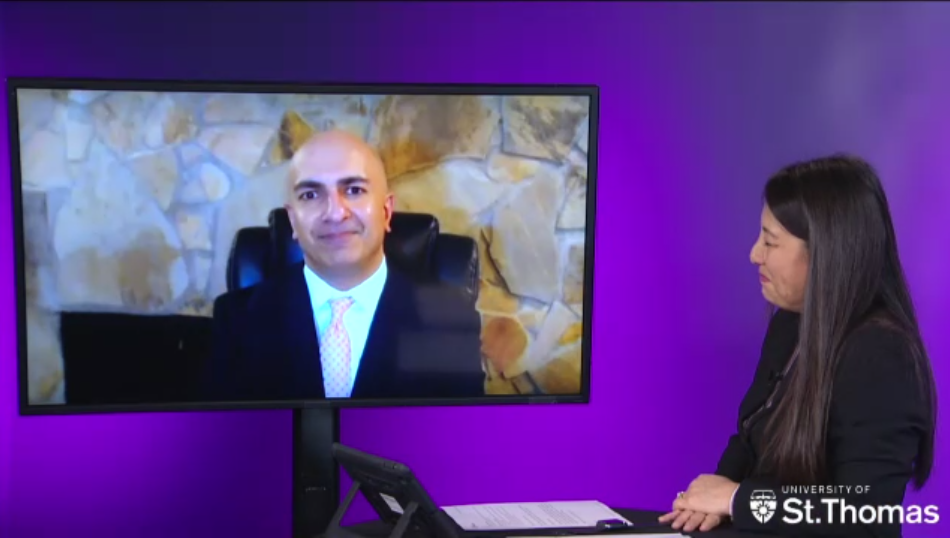
Neel Kashkari and Dr. MayKao Y. Hang discuss racial and economic disparities in education.
5. Making sure that we have a system where everyone can participate is critical.
With the global pandemic highlighting the need for adequate ability for quality education among youth as well as the many economic disparities in Minnesota and beyond, Kashkari spoke about the importance of public participation in these crucial matters.
To display the importance of public participation, Kashkari explained in recent years as the labor market has gotten slimmer and as the labor force searched and found workers, America began to develop the fastest wage gains at the lower end of the distribution.
“It took 10 years to get there after the Great Recession which is far too long, but we're finally seeing that everybody at some level was built to participate in the economic growth that we were experiencing toward the end of the expansion there. I think that growth is absolutely critical but everything that we can do to make sure that growth is inclusive, we all will be better off,” Kashkari said.
With optimism, Kashkari remarked, “The U.S. is still the innovation engine of the world. We have the fiscal capacity to support the American people through this pandemic.”
